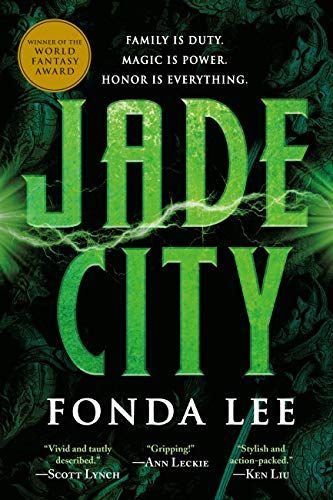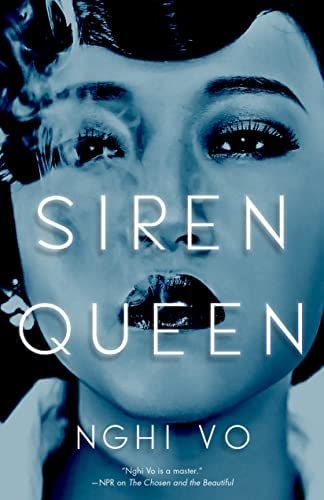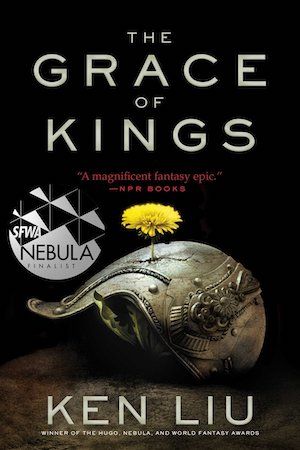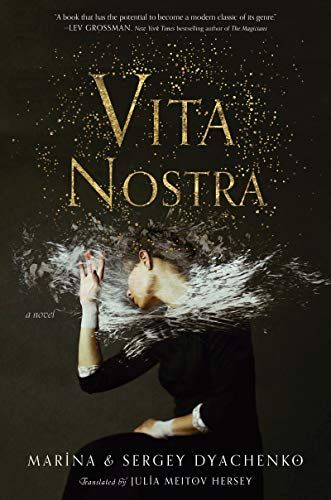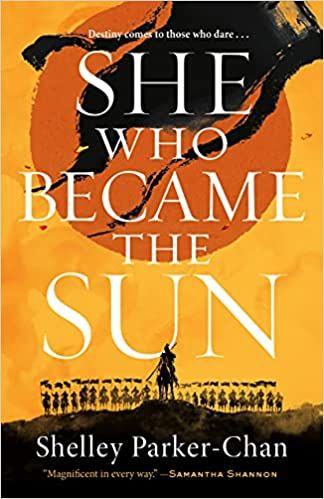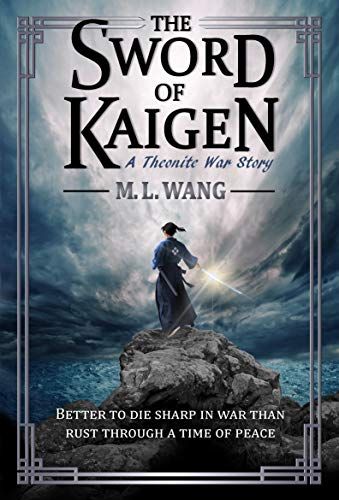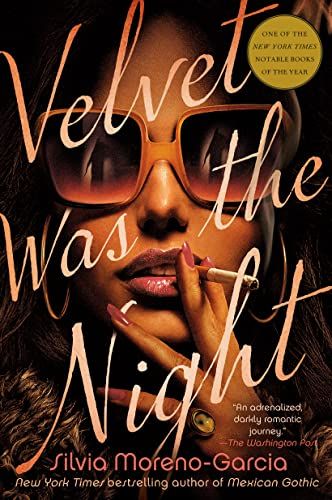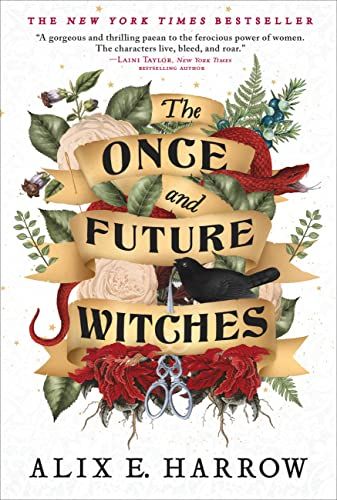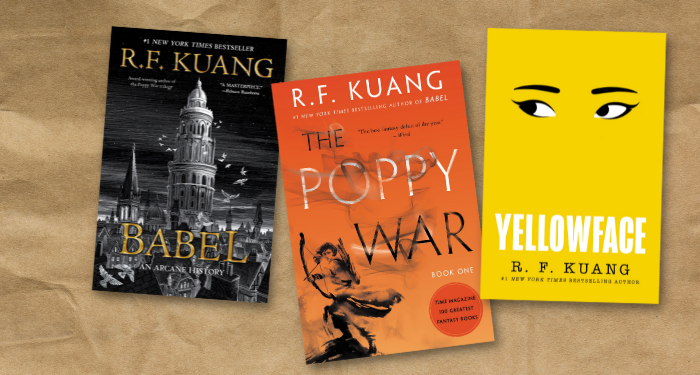
8 Incredible Authors Like R.F. Kuang
Ever since I read The Poppy War, R.F. Kuang became one of my all-time favorite authors. So of course I marathon read the whole trilogy and was left with a gaping hole in my heart until her next novel was released. Babel is now one of my favorite fantasy books of all-time, and I cannot wait to read Yellowface next, which is out soon! The thing with us voracious readers is that we devour these stories too quickly. And when our favorite authors are “newer” and don’t have extensive backlists, we’re left waiting for their latest book. That’s actually a great thing! Because now we have time to explore new stories and look for more books similar to the ones we already love. So, if you’re like me and can’t wait to dive into Kuang’s next story, today I’m talking about eight incredible authors like R.F. Kuang!
With the release of Yellowface, R.F. Kuang has jumped across genres. That novel is a thrilling literary fiction set in the publishing world — which is very different from her previous works. But because she’s predominantly a fantasy writer, this list will also focus on fantasy authors like R.F. Kuang.
But what does that mean exactly? It’s hard to pinpoint what makes her books so unique. Most of them blend the lines between some aspect of society (or history) and fantasy to create the most incredible stories. She loves writing SFF because “nothing else allows us to distort large issues to look at them better.” Another important aspect of Kuang’s writing is her use of East Asian culture, identity, history, and traditions. Her academic specialties lie in Chinese Studies, and her knowledge and research of the subject help shape stories like The Poppy War Trilogy and Babel.
So without further ado, let’s take a look at these eight unputdownable authors like R.F. Kuang!
Fantasy Authors Like R.F. Kuang
Fonda Lee
For those who like the grimmer, action-packed, side of The Poppy War Trilogy, Fonda Lee’s Jade City is the right fit! This family saga has tons of political machinations, martial arts fighting, and even magic. The focus on war and violence explored throughout The Green Bone Saga is also very reminiscent of Kuang’s own books. All of which makes Jade City in particular a great readalike.
Even Fonda Lee’s YA novels like Exo are similar to R.F. Kuang’s. They might seem entirely different, seeing as they’re sci-fi, but they also explore topics of violence, colonialism and oppression through an SFF lens — all of which are a big part of Kuang’s work.
Nghi Vo
Moving on to Nghi Vo’s work, which consists mostly of beautiful novellas linked by a single narrator. All of them are a testament to the power of storytelling and how it may change depending on who tells the story, which is one of the things we learned about The Poppy War Trilogy’s Su Daji. The Empress of Salt and Fortune in particular is reminiscent of her character, featuring a woman looking for power who eventually becomes empress.
On the other hand, Nghi Vo has two incredible works of historical fantasy that explore Asian culture and identity when it’s displaced — much like Robin in Babel. The Chosen and the Beautiful’s main character Jordan has a similar coming-of-age story to Robin. While Siren Queen also explores that theme, the main character Luli’s personality is much like Rin’s. She’s willing to do anything for what she wants.
Ken Liu
Ken Liu writes a lot of sci-fi short stories that at first glance might not seem too similar to Kuang’s. But he really is an excellent writer, and some of his stories discuss the same themes. For example, in The Hidden Girl and Other Stories, there’s an action-packed fantasy story about fighting against oppression named “Grey Rabbit, Crimson Mare, Coal Leopard”. On the other hand, The Paper Menagerie has several stories that incorporate Chinese culture such as “All The Flavors” or “The Litigation Master and the Monkey King”.
But what makes Ken Liu such a great fantasy author like R.F. Kuang is his adult fantasy trilogy! The Grace of Kings is heavily political and focuses a lot on war and power struggles — much like Kuang’s own high fantasy trilogy. It also features two characters who fight to depose an emperor and then end up on opposite sides of a war. Rin and Nezha, anyone?
Marina and Sergey Dyachenko
Ukranian authors Marina and Sergey Dyachenko might come as a surprise. Not many of their novels are translated into English at the moment. But those that are translated share some similar dark vibes with Kuang’s work.
So if you love the magic and dark academia setting of Babel, then Vita Nostra is definitely for you! On the other hand, The Scar is a more violent kind of high fantasy — and it features one hell of a morally ambiguous main character that is reminiscent of Rin.
Shelley Parker-Chan
Shelley Parker-Chan debuted in 2021 with She Who Became the Sun. This novel reminded me so much of The Poppy War Trilogy that I think it’s perfect for this list! From the morally ambiguous female main character, to the political machinations and a focus on military strategy, this book is a great readalike to Kuang’s own trilogy. Plus, it’s also inspired by Chinese history, as She Who Became the Sun reimagines the rise of the Ming Dynasty and its emperor.
Book #2 in this duology is called He Who Drowned the World. It comes out later this year and it promises to be another epic power struggle you won’t want to miss!
M.L. Wang
The next author on this list is M.L. Wang, who has self-published her own work since her debut in 2016. She tends to write epic, magical stories full of violence and conflict that are reminiscent of Kuang’s. If you liked the magical connection to deities of The Poppy War, you’ll probably enjoy Seven Forsaken, which is part of the author’s newsletter. If, on the other hand, you like the academic and magical conflicts of Babel, you’ll probably enjoy Blood Over Bright Haven. Her next standalone coming out this July.
But her most popular book is one of the best readalikes to Kuang’s trilogy! The Sword of Kaigen is a dark fantasy novel about the brutalities of war, and like Kuang’s work, it draws inspiration from the Second Sino-Japanese War.
Silvia Moreno-Garcia
The next author on this list is none other than Silvia Moreno-García! Okay, I’m biased: she’s one of my all-time favorite authors. But basically all of her books talk about power struggles, privilege, colonialism and oppression. She also draws inspiration from Mexican history and culture in a way that is reminiscent of Kuang. Plus, I love how she likes to write across genres — something that R.F. Kuang is beginning to do as well.
If you like a more historical fantasy like Babel that has a great setting and those themes of privilege and power, you might enjoy Gods of Jade and Shadow or even The Beautiful Ones. Despite being sci-fi, The Daughter of Doctor Moreau also talks about themes of colonialism and oppression. And finally, Babel has a more political side that talks about activism and revolution. These topics are an important part of the context behind Velvet Was the Night, which is set in a time of political unrest in the country.
Alix E. Harrow
Last but certainly not least, Alix E. Harrow focuses more on shorter fiction. But her stories have similar themes of power structures, as well as the importance of words and language. Her two novels in particular remind me a lot of Babel.
On one hand, there’s The Ten Thousand Doors of January. It’s set in the early 20th century and talks about colonialism, gender, and resistance. It also follows a main character that feels displaced and like an object of a wealthy man’s collection. Then there’s The Once and Future Witches, another historical fantasy that talks about revolution, segregation, and the fight to change an oppressive world — all of which are important themes in Kuang’s latest fantasy novel.
Find More Authors Like R.F. Kuang
If you’re looking for even more incredible fantasy authors like R.F. Kuang, check out Book Riot’s TBR service. It will pair you with a bibliologist, AKA a qualified book nerd, that will pick personalized recommendations just for you!



